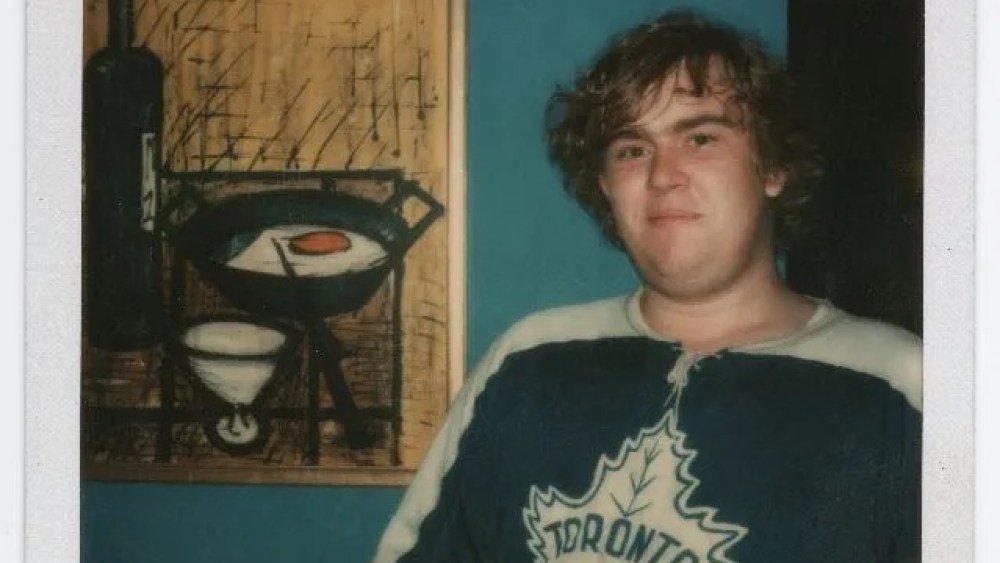On screen, John Candy was often the gregarious life of the party. He smoked and drank through a game of racquetball in “Splash,” he charmed a household of unruly kids with his free-spirited ways in “Uncle Buck” and annoyed the living hell of Steve Martin with his constant stream of chatter in “Planes, Trains and Automobiles.” But “John Candy: I Like Me,” a new documentary about his life and career that kicks off the opening night of the Toronto Intl. Film Festival, shows the private turmoil behind the comedian’s affable facade.
“There were real, serious, traumatic experiences that formed John and made him who he was,” says Colin Hanks, the film’s director. “He was an incredible human being and a kind, loving, generous spirit. But all of those qualities were coping mechanisms for a tremendous amount of pain and sorrow.”
Chief among the issues that Candy battled with was unresolved grief he felt after his father died of heart disease at age 35 when the actor was 4 years old. That gave Candy, who would die at age 43, a sense that he was on an accelerated timeline.
“This idea of borrowed time combined with the nature of show business, which is go, go, go, go, moving at the speed of opportunity. Those things came together to create this perpetual motion machine for John that made things incredibly hectic and stressful and added to that general sense of anxiety,” says Hanks.
Hanks says he related to his subject’s struggles to make sense of the death of a parent, since his mother, Samantha Lewes, died from lung cancer at a young age.
“I understand this ticking clock,” Hanks says. “My mother died at 49. I’ll be turning 48 in November. I always look at 49 as a marker for me in my life. I have zero doubt it was the same way for John.”
Professionally, Candy seemed to be unstoppable during the 1980s and early ’90s, making hits like “Stripes,” “Spaceballs” and “Cool Runnings” with everyone from Bill Murray to Mel Brooks to Doug E. Doug. But the filmmaker whose sensibility seemed tailor-made for Candy’s was John Hughes, who worked with him on six movies, including classics like “Uncle Buck,” “Planes, Trains and Automobiles” and “Home Alone.”
“They were both real, genuine people that never lost sight of that even after they became famous,” says Hanks. “In show business, you’re part of a traveling circus. You meet a lot of different people, and when you find a kindred spirit, you hold on to that, and you spend as much time with them as you can. You work with them as much as you can.”
In interviews, Candy, who struggled with his weight for much of his life, had to deal with the press making rude comments about his size. Hanks’ film contains many instances where interviewers essentially call Candy “fat” to his face, leaving him trying to smile good-naturedly. It’s shockingly cruel.
“You look at interview after interview and horrible things are being said and questions are being asked in incredibly insensitive ways,” Hanks says. “It’s tough to see how uncomfortable John was in almost every clip. And he had good reason, because some of the things that people said were disgusting and would not be tolerated today.”
To make the documentary, Hanks interviewed Candy’s co-stars and friends — a group that includes Eugene Levy, Martin Short, Murray, Dan Aykroyd, Catherine O’Hara and nearly the entire galaxy of the 20th century’s greatest comedians. Even three decades after his death in 1994, they talk about Candy with tremendous love and admiration. Hanks, whose father, Tom Hanks, co-starred with Candy in “Splash” and “Volunteers,” had his own memories of the late actor.
“It’s through kid glasses, because I knew him when I was young, but even as a child he made you feel like your opinions mattered, your feelings mattered, you mattered,” Hanks says.

